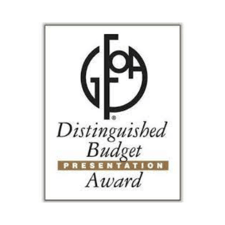Defining and Developing a Data-Driven Equity Budgeting Strategy
Tuesday, April 12, 12:00 PM CST
The budget is one of the most powerful tools for influencing change. By applying data and evidence, using program-level data and insights as your guide, you can repurpose and reprogram your organization to achieve foundational results, equity-focused community outcomes, and thrive. Local governments can have a lasting and significant impact on equity creation and application for all residents within their communities.
The conversion from a line-item driven budget to a program budget opens communication and decision-making pathways enabling equity opportunities at all service levels. When cities allocate their line-item budgets to program budgets, they can better understand the services they provide and the actual costs of delivery. This allocation to programs provides a new language through which all parties can communicate and more easily identify the ties between the services and the impact on the various segments of the community and the community as a whole.
Local government should strive to deliver programs and services that advance equity for underserved residents in the community. By establishing a clear equity definition along with stated mission and goals, local government leaders and staff can begin adjusting existing programs and starting new programs to meet those equity goals through the lens of the equity definition, thus solidifying funding for these equity-focused programs within the budget.
In this webinar, you will learn about concepts and approaches to Budgeting for Equity from ResourceX and learn from the City of Tacoma Budget Office and Equity Office as they share their effective strategy towards embedding equity into the budget across their organization.
Joining ResourceX for this Presentation:
Katie Johnston
Budget Officer, City of Tacoma Office of Management & Budget
Katie Johnston was appointed Budget Officer for the City of Tacoma in June 2017. She is responsible for producing the City’s $3 billion budget. Her office is responsible for revenue forecasting, financial and policy analysis, data analysis and program evaluation, capital planning, and labor analysis.
She has worked for the City of Tacoma since 2011. Before her appointment, she led data and performance management efforts, fiscal and policy analysis, community engagement, financial planning and launched the Continuous Improvement Initiative at the City of Tacoma. She has worked on strategic planning, data analysis and research, emergency response, and environmental policy efforts for a variety of government and non-profit entities.
Tammy Liddle Lobban
Management Analyst, City of Tacoma Office of Management & Budget
Tammy has been with the City of Tacoma, working in the Office of Management and Budget, since January 2018.
Tacoma Office of Equity and Human Rights

Chris Fabian
ResourceX, CEO & Co-founder
Chris has been invested in solving the problems associated with resource scarcity in local government for over a decade. Through ResourceX, his team provides the software solution for Priority Based Budgeting (PBB) using data and evidence to transparently and exponentially improve results for citizens and the community. PBB is now practiced and applied by over 250 organizations across North America.
ResourceX believes in the purpose of government and its potential to lead the charge in tackling some of the world’s most significant challenges. Empowering the budget increases local government's ability to tackle massive societal challenges, from climate change and homelessness to equity and sustainability, through program identification and resource reallocation. As a thought leader and budget software innovator, we can support local governments in the vital work they do.
 Program Data Just Got More Distinguished...
Program Data Just Got More Distinguished...
Learn more about updated GFOA Distinguished Budget Award Eligibility Criteria
GFOA is proud to announce updates to the Distinguished Budget Presentation Award program for budgets beginning on or after 1/1/2021. For more information about program changes or to view updated forms, click here.
Some important changes include:
- Clearly presented departmental program descriptions
- A narrative description of the assigned services, functions, programs and activities of organizational units should be included. Major priorities within each organizational unit should also be addressed.
- Clear linkage between identified programs and goals and objectives
- This criterion requires that departmental/program goals and objectives be described. The relationship of departmental/program goals to the strategic goals of the entity should be apparent.
-1.png)
.png)
